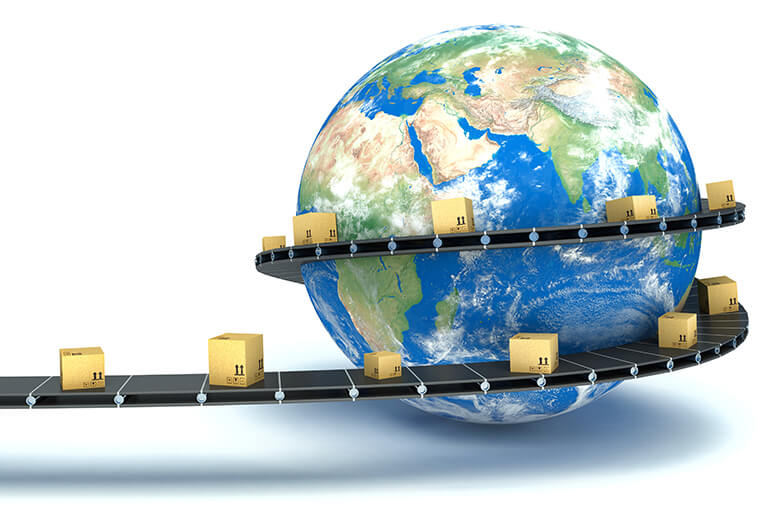How To Leap Over Import And Export Hurdles
According to our APAC research report, customs, currency, and logistics are the biggest concerns for SMEs looking to export.
What’s enabled medium-sized enterprises (SMEs) in Asia Pacific to gain real access to global markets and the opportunity to grow their business footprint? Tech. From finding new customers or suppliers in other markets to marketing a product overseas and facilitating payments across borders, technology has made international trade easier.
Despite the strides made, obstacles remain. Whether it’s importing raw materials or exporting finished products, the challenges are similar.
According to the 2018 FedEx Express Asia Pacific SME research report [1], SMEs’ top three concerns are
Customs clearance has been a perennial headache for small businesses starting out. Usually because regulations vary significantly across markets, and Customs Bureaus’ use of technology varies widely too. Manual systems and organizational challenges mean that the risk of errors is high. Delayed shipments at customs is a very real concern for SMEs who most times don’t know how to navigate the paperwork.
Despite the strides made, obstacles remain. Whether it’s importing raw materials or exporting finished products, the challenges are similar.
According to the 2018 FedEx Express Asia Pacific SME research report [1], SMEs’ top three concerns are
- 1. Customs - 49%
- 2. Currency - 45%
- 3. Logistics - 43%
Customs clearance has been a perennial headache for small businesses starting out. Usually because regulations vary significantly across markets, and Customs Bureaus’ use of technology varies widely too. Manual systems and organizational challenges mean that the risk of errors is high. Delayed shipments at customs is a very real concern for SMEs who most times don’t know how to navigate the paperwork.
Addressing pain points for SMEs
With our research revealing that Asian SMEs are importing and exporting more than ever, the risks and costs relating to customs are continually on the rise.
Then we come to currency exchange. Small businesses are especially vulnerable to global currency fluctuations caused by a host of geopolitical and macroeconomic factors. Currency weakness could lead to more overseas sales but can also mean more expensive raw materials imports. Despite growing productivity and efficiency, the inevitable time lag between the purchase of inputs and delivery of finished products creates additional currency risk. While there are ways to mitigate the effect of currency fluctuation on the bottom line, small businesses struggle more with unstable market conditions than larger organizations.
Logistics and delivery, on the other hand, is an area that SMEs can have more control over, so it becomes a clear and powerful competitive advantage. Once customers order a product, they want to receive it in the shortest time possible.
SMEs unable to ship goods to international customers on time will suffer from depleted customer trust and a negative business impact. That’s why a reliable logistics service provider is critical to helping SMEs manage the whole supply chain process; from inventory management and customs clearance all the way to delivery to local and global customers.
One example: to help businesses cope with customs paperwork, FedEx offers up FedEx® Global Trade Manager, a free online shipping assistant. The tool helps SMEs find the correct documents required for international shipping and estimates duties and taxes. These documents can be saved online to be reused later, saving a lot of time.
International trade spells opportunity for Asia’s SMEs, but the challenges are real. Having the right product is not enough if it can’t be delivered on time – wherever in the world that might be. While factors like currency exchange rates can’t be controlled, SMEs can choose to work with a trusted logistics partner. That’s half the battle won and helps pave the way towards seamless customer experience and business profitability.
Then we come to currency exchange. Small businesses are especially vulnerable to global currency fluctuations caused by a host of geopolitical and macroeconomic factors. Currency weakness could lead to more overseas sales but can also mean more expensive raw materials imports. Despite growing productivity and efficiency, the inevitable time lag between the purchase of inputs and delivery of finished products creates additional currency risk. While there are ways to mitigate the effect of currency fluctuation on the bottom line, small businesses struggle more with unstable market conditions than larger organizations.
Logistics and delivery, on the other hand, is an area that SMEs can have more control over, so it becomes a clear and powerful competitive advantage. Once customers order a product, they want to receive it in the shortest time possible.
SMEs unable to ship goods to international customers on time will suffer from depleted customer trust and a negative business impact. That’s why a reliable logistics service provider is critical to helping SMEs manage the whole supply chain process; from inventory management and customs clearance all the way to delivery to local and global customers.
One example: to help businesses cope with customs paperwork, FedEx offers up FedEx® Global Trade Manager, a free online shipping assistant. The tool helps SMEs find the correct documents required for international shipping and estimates duties and taxes. These documents can be saved online to be reused later, saving a lot of time.
International trade spells opportunity for Asia’s SMEs, but the challenges are real. Having the right product is not enough if it can’t be delivered on time – wherever in the world that might be. While factors like currency exchange rates can’t be controlled, SMEs can choose to work with a trusted logistics partner. That’s half the battle won and helps pave the way towards seamless customer experience and business profitability.
***
[1] “Global is the New Local: The Changing International Trade Patterns of Small Businesses in Asia Pacific”, a commissioned research study conducted by Harris Interactive on behalf of FedEx Express, July 2018.


















 The Latest
The Latest